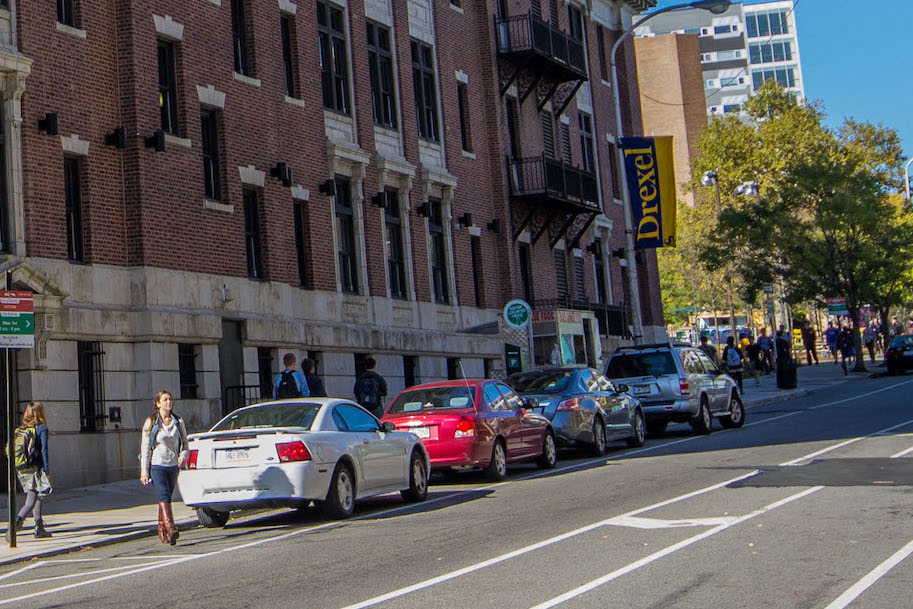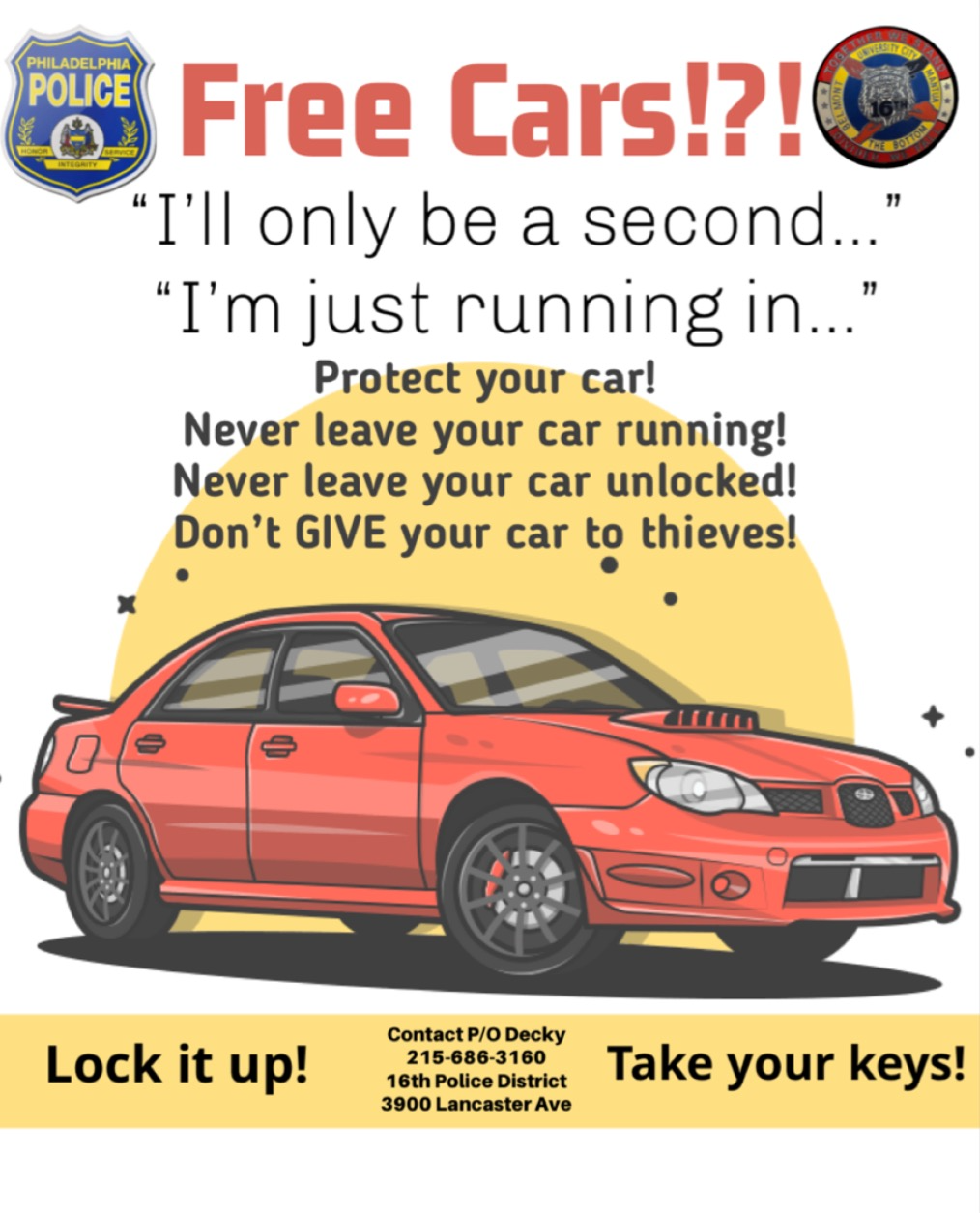
The Drexel University Police Department is spreading awareness about a string of car thefts in the area and promoting safe, responsible practices for members of the community.
According to community relations officers Kim McClay and Thomas Cirone, police from several departments have identified a pattern of automobile thefts throughout the city of Philadelphia, which they say is caused by drivers neglecting to lock their vehicles.
“A lot [of these incidents] happen because [drivers] will run into a store — or delivery drivers run into a store — and leave their car running,” Cirone said. “[They say] ‘I’ll just be a minute.’ But it doesn’t even take that long for someone to steal it.”
An uptick in similar incidents comes during the winter months, when drivers prioritize convenience over safety. In the moment, leaving a car running to keep the interior warm while stepping out might seem acceptable, but it can have serious repercussions.
“All it takes is one time,” McClay said. “And the more times [drivers] do it, and get away with it — the more likely they are to do it again.”
On Drexel’s campus, many incidents of car theft occur along the stretch of Lancaster Avenue, which houses many restaurants and businesses. But this issue is citywide, McClay and Cirone said.
“Criminals travel from area to area,” McClay said. “They might go to Penn, steal a few bikes, then come over to Drexel, [and so on.]”
During weekly meetings with local law enforcement agencies, information is exchanged and departments check in with one another. This pattern is widespread and not unique to Drexel’s campus, but McClay and Cirone are spreading the word in order to eliminate the incidents thatoccur on and around campus.
In December, the two community relations officers visited several businesses around campus. They posted flyers to make members of the Drexel community aware of the issue and to remind them of safe practices when leaving vehicles unattended.
McClay and Cirone consistently advocate for being “safety conscious” at all times. This includes being aware of your surroundings and thinking about consequences before acting.
“[Many people] don’t think about their key fob,” Cirone said. “They just throw it in their cupholder and forget they left it there [when they leave their car].”
The key fob gives criminals access to more than the vehicle. Usually, drivers put keys to their home and other valuables on the same keychain. If the thief can locate your car registration information, which includes your address, they can go to your home and break in using your keys, Cirone explained.
A similar offense is the theft of catalytic converters from vehicles, a device that controls emissions and reduces toxicity of pollutants. While not as common as traditional vehicle thefts, criminals target specific cars — including the Toyota Prius and several Honda models — for the ease of access to these parts.

McClay and Cirone said catalytic converter thefts do occur regularly; between one to three incidents occur every week, reported the University City District.
“Criminals [can simply take a] hand-held grinder, jack the car up quickly and slide under, stealing the catalytic convertor, which takes only seconds to cut out,” Cirone said.
McClay and Cirone offered several quick preventative measures to community members.
“First is to take pictures of your car, especially if it has identifying marks,” McClay said. “If your car is stolen, call us immediately. The quicker we get the information, the faster we can put it out there, and the more likely you are to get your car back.”
After receiving a report of theft, the information is shared online with the National Crime Information Center, which alerts local law enforcement.
McClay also suggests that drivers place their belongings in the trunk before driving to their destination. Doing this after arriving at the destination is far less effective, as criminals can spot drivers locking up their belongings and will know to target the vehicle.
Cirone suggests always parking in well-lit areas and being aware of your surroundings.
“Get to know your license plate number, particularly young people,” Cirone said. “Store it in your phone. It is a good idea to know it, [especially in the event your car is stolen].”
However, the most important and most effective way to combat car theft is by being aware of your surroundings.
According to McClay, a vehicle with “no ties” to the criminal is of high value. They can steal the car and then easily abandon it or give it away. Knowing your car’s make and model, license plate number, identifying marks and more, in addition to keeping it locked, in a well-lit area and in your watch, are the best ways to protect against this type of incident.
“Don’t leave your vehicle running and unattended, even for a second,” Cirone said. “Because, even if you see a person running to [take] your car, you might not be able to stop them. You can be that quick, but they are usually quicker. Do things the right way, and there won’t be any problems.”



